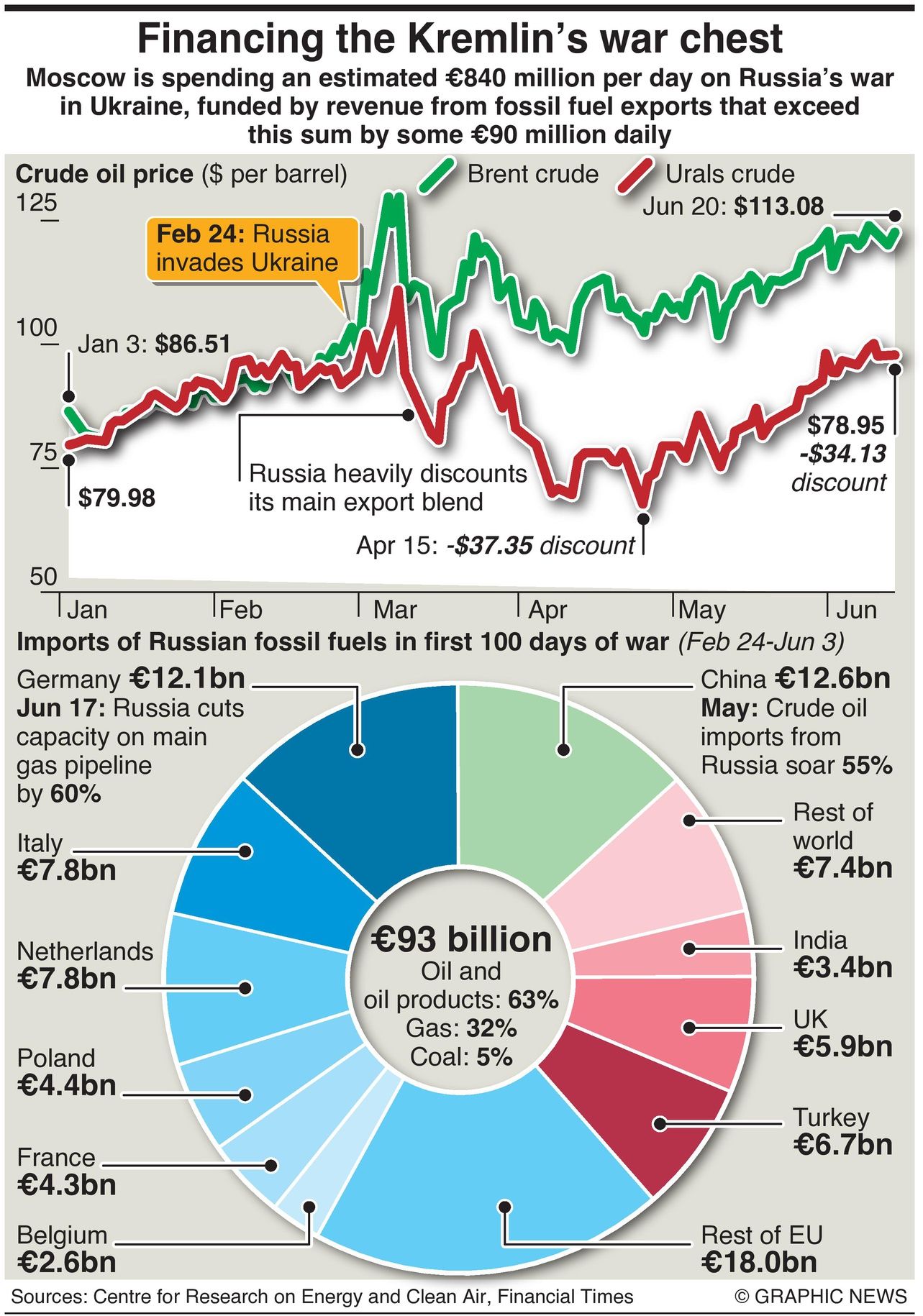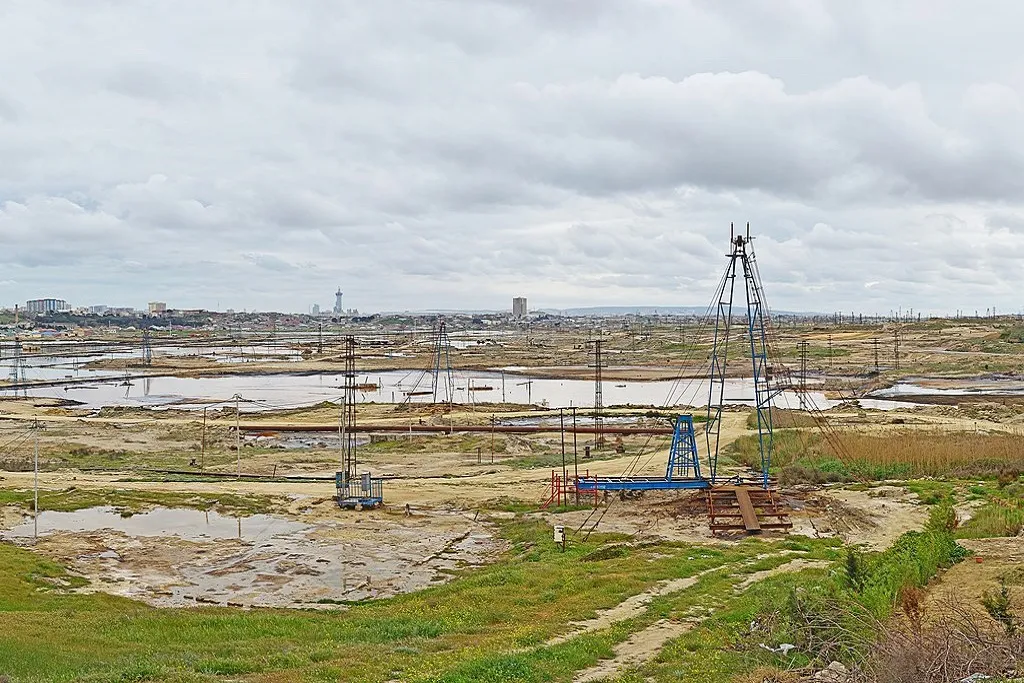
The Finland-based Centre for Research on Energy and Clean Air (CREA), an independent think tank, calculates that Russia earned €93 billion ($97.4 billion) in revenue from fossil fuel exports in the first 100 days of the country’s invasion of Ukraine.
“Revenue from fossil fuel exports is the key enabler of Russia’s military buildup and aggression, providing 40% of federal budget revenue,” it said.
Since Russia invaded Ukraine in late February, global oil prices have soared, giving refiners in Asia an incentive to import oil Moscow is offering at steep discounts of $30 to $35, compared with Brent crude and other international oil now trading well above $100 per barrel.
China imported 800,000 barrels of Russian petroleum daily by ship in May, a figure that does not include oil delivered via pipelines. The volume soared by more than 55% compared with a year ago.
India’s marine imports of Russia’s oil also spiked from zero in January to 100,000 barrels per day in February to 370,000 a day in April to 870,000 a day in May.
“If India funding Russian oil is funding the war -- tell me, then buying Russian gas is not funding the war? Let’s be a little even-handed,” India’s foreign minister, Subrahmanyam Jaishankar, said at a recent forum in Slovakia, referring to Europe’s imports of Russian gas.
The EU imported €57 billion of Russian fossil fuels during the 100 days following the February 24 invasion of Ukraine. According to CREA, the global revenue comprises an estimated €46bn for crude oil, €24bn for pipeline gas supplies, €13bn for oil products, €5.1bn for LNG and €4.8bn for





